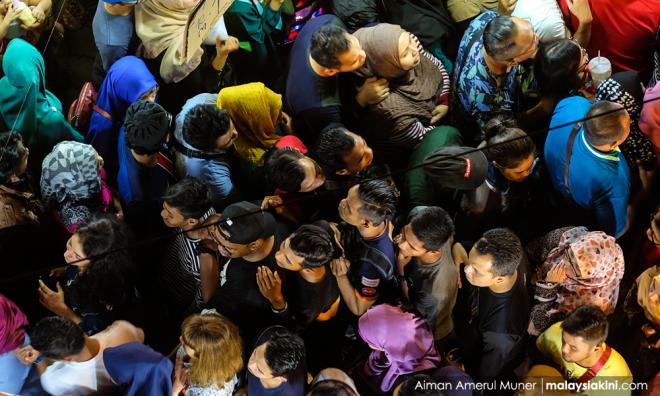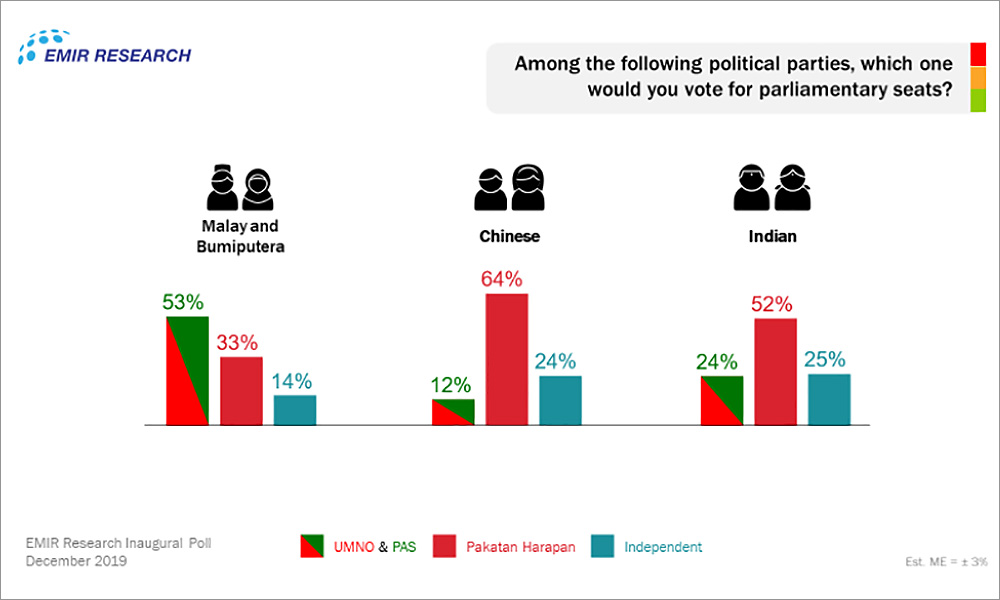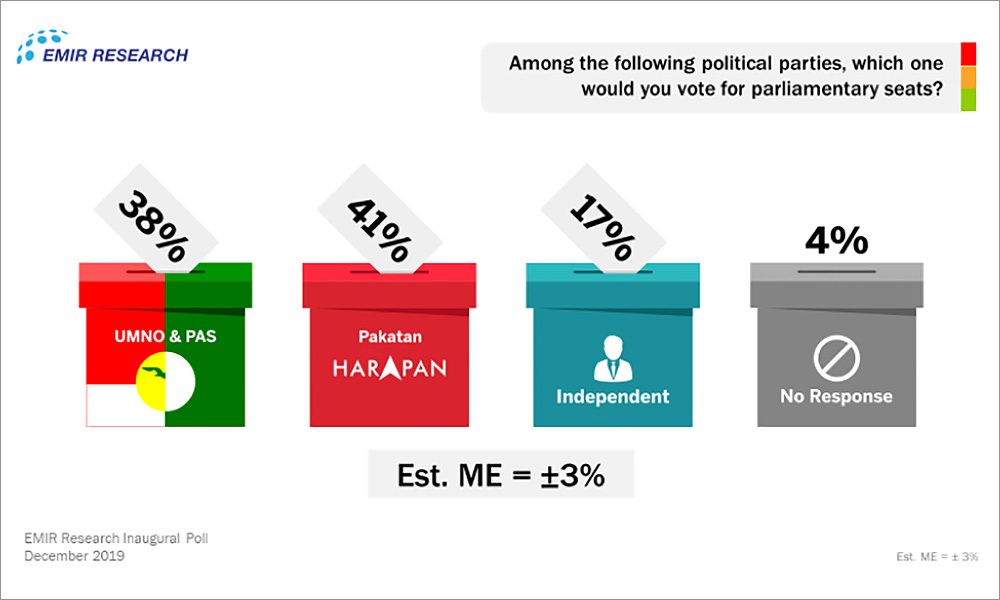
A survey by Emir Research found the Umno-PAS pact Muafakat Nasional to be most popular among respondents who are Malay, bumiputera, rural, younger and those who earned a lower income.
More than half (53 percent) of Malay and bumiputera respondents preferred the Opposition pact while only 33 percent said they would choose Pakatan Harapan should a general election be held now.
A significant 14 percent would opt for an independent candidate.
They were asked this question: “Among the following political parties, which one would you vote for parliamentary seats?” (sic).
This was a marked difference from Chinese and Indian respondents, many of whom said they preferred Pakatan Harapan.

Respondents from rural areas were also much more in favour of Muafakat Nasional.
Of the category, 58 percent preferred the pact while only 33 percent said they would vote for Harapan.
Muafakat Nasional was less popular among urban respondents as almost half (48 percent) said they would vote for Harapan while 32 percent said they preferred Umno-PAS.
Of all age groups analysed, respondents aged 31 and younger favoured Muafakat Nasional the most - 42 percent. Harapan was slightly less popular at 40 percent.
Those aged 51 and above were most supportive of the ruling coalition, with almost half (49 percent) saying they would vote for them. Support for Muafakat Nasional for this age group was 33 percent.
Of all income groups polled, the Opposition pact was the most popular among respondents who had a monthly household income of less than RM3,000 - getting 45 percent of support.
In contrast, more than half middle- and higher-income respondents opted for Harapan.
When analysed in totality, Harapan managed a slight edge over Muafakat Nasional among the 1,992 respondents surveyed.

Factoring the margin of error, the respondents’ support for Harapan was between 38 and 44 percent while for Muafakat Nasional, it was between 35 and 41 percent.
“The contest can only be described as neck-to-neck,” the research report states.
Due to the significant number (17 percent) of positive responses for the “independent candidate” option, Emir Research also inferred the “rise of the third force” but qualified that more research needed to be done to explain this.
Results of the survey, which was conducted on the ground between Sept 5 and Oct 10 this year, were presented at Emir Research’s headquarters in Bukit Damansara today.
Led by Bersatu supreme council member Rais Hussin Mohamed Ariff, Emir Research describes itself as an “independent think-tank” that focuses on data-driven strategic policy recommendations. - Mkini



No comments:
Post a Comment
Note: Only a member of this blog may post a comment.